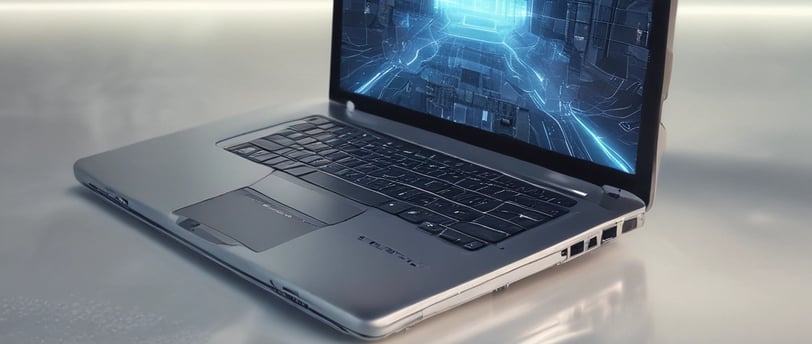The Future of Laptops: What’s Next for Our Most Essential Device?
Laptops have evolved dramatically over the past few decades—from bulky briefcase-sized machines to sleek, high-performance tools that fit into a backpack. But the journey isn’t over. As we look toward the future, laptops are poised for some of the most exciting transformations yet. Let’s explore what the next generation of laptops might look like. 1. AI-Enhanced Productivity Artificial Intelligence is making its way into everything—from software to hardware optimization. Future laptops will use AI to: Boost battery life by learning your usage habits. Automatically optimize performance for different tasks. Provide smarter assistance via AI companions integrated into the OS. Translate languages in real-time, improve video calls, and even enhance writing or coding suggestions. Microsoft’s Copilot and Apple’s on-device AI with M-series chips are just the beginning. 2. Foldable and Flexible Displays We’ve already seen foldable phones and dual-screen concepts. The next wave of laptops may feature: Foldable OLED displays, turning a laptop into a tablet or vice versa. Rollable screens, allowing compact storage and expanded workspace. Detachable components, for more modular and customizable devices. Brands like Lenovo and ASUS are already testing the waters with these designs. 3. Battery Breakthroughs Battery life has always been a limiting factor. But with: Silicon-anode and solid-state batteries in development, Faster wireless charging, and Energy-efficient chipsets (like Apple’s M-series and Qualcomm’s Snapdragon X), we could soon see laptops running for days, not just hours. 4. Cloud-First and Lightweight OS As cloud computing matures, future laptops may rely less on local storage: Cloud-native laptops will be faster, cheaper, and more secure. Thin operating systems like ChromeOS or Windows Lite may dominate. More virtual desktop experiences will let you run powerful apps from the cloud, even on minimal hardware. 5. Advanced Biometrics and Security Passwords may become obsolete. Expect future laptops to feature: Facial recognition, retina scans, or heartbeat patterns for authentication. Tamper-proof hardware encryption for data protection. Built-in privacy filters and AI-powered threat detection. 6. Eco-Friendly and Repairable Designs As sustainability becomes a global priority, future laptops will be: Made from recycled or biodegradable materials. Easier to repair and upgrade, with modular parts. Designed for longer life cycles to reduce e-waste. Framework and Fairphone are early examples of this philosophy. 7. Seamless Integration with Ecosystems Laptops won’t exist in isolation—they’ll be part of smart ecosystems: Instant pairing with phones, tablets, and AR/VR headsets. Cross-device continuity, where work can shift between screens effortlessly. Voice-controlled or gesture-based input will supplement the traditional keyboard and mouse. Final Thoughts The laptop is far from a static device. It’s adapting—becoming smarter, more powerful, more flexible, and even more personal. As technology advances, the laptop of tomorrow will be a dynamic companion, tailored to your needs, habits, and environment.
5/8/20241 min read


Laptop reviews and history.
